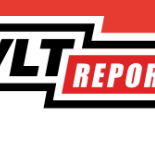Sweden will soon ban paid, live-streamed or custom-made sexual content online. The law takes effect July 1, and could send violators to prison for up to one year.
OnlyFans is an online subscription-based platform known for hosting sexually explicit content. While it’s a space for all kinds of creators, it’s most famous for allowing sex workers to earn money directly from subscribers.
But in Sweden, that’s about to change.
A new law targeting digital sex work
Starting July 1, paying for live or custom sexual content online — such as live chats or personalized videos on platforms like OnlyFans — will be illegal. The law builds on Sweden’s “Nordic Model,” which criminalizes buyers of sex, but not the sellers.
This legal framework was introduced in 1999 as a way to combat sex trafficking and exploitation by targeting demand. It has since influenced countries like France, Ireland and Norway, which have adopted similar laws.
What’s still allowed?
According to the legislation, pre-recorded pornographic content remains legal. So does paying to follow an account where explicit material is posted regularly, or simply consuming content without influencing it.
Paying for direct interaction — including custom requests, personalized videos or live-streaming sessions where viewers can chat with or direct the performer — is illegal.
Why the law exists — and the pushback
Swedish lawmakers argue that expanding the Nordic Model into digital spaces is necessary to keep up with how sex work has moved online. They believe that interactive sex content can still be exploitative, and that buyers must be held accountable.
Critics, however, say this could put sex workers at even greater risk. They argue that criminalizing customers may force the work underground, removing what little safety and structure platforms like OnlyFans provide.
The numbers behind the content
According to Newsweek, more than 350 million people are registered on OnlyFans. The platform allows users to pay for exclusive access to a creator’s content — whether that’s adult content, fitness advice or exclusive music access.
Statistics shared by World of Statistics on X show that 1.4 million of those creators are American women.
More than just adult content
OnlyFans isn’t limited to sexual content. Many creators use it for fitness coaching, cooking, comedy and more. Some musicians also use it to supplement income lost to low streaming payouts.
“Imagine being an artist and having nearly 8 million monthly listeners on Spotify, but earning more money from having 1,000 people subscribe to pictures of your feet. Don’t hate the player, hate the game,” British musician Lily Allen wrote on X in 2024.
Her post reflects a broader frustration among digital creators looking for sustainable ways to earn a living online.
Penalties and enforcement
Once the law goes into effect, individuals in Sweden who pay for custom or live sexual content could face up to one year in prison. The law targets buyers, not content creators, maintaining the Nordic Model’s approach to decriminalizing the seller.
Sweden isn’t alone in this shift. France, Ireland, Norway and other countries have adopted versions of the Nordic Model. Though specific laws differ, they share the principle of penalizing demand rather than supply.
































